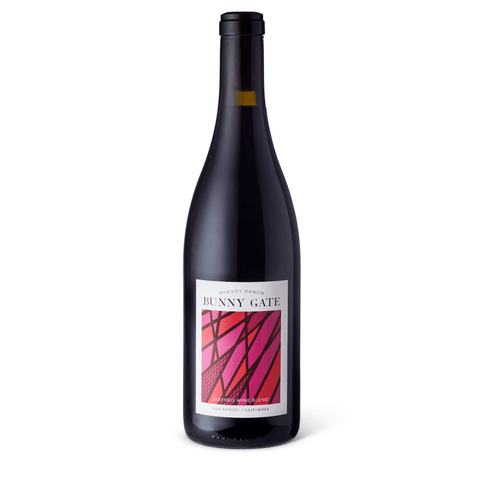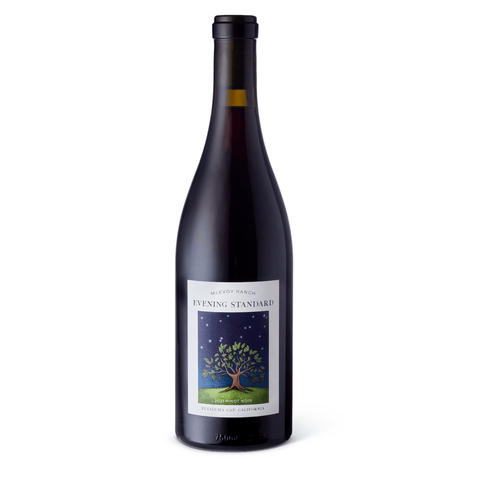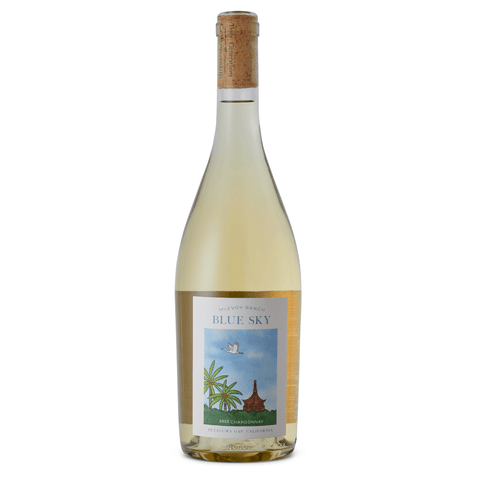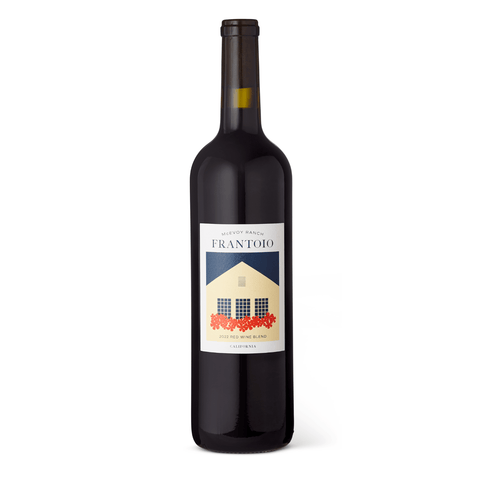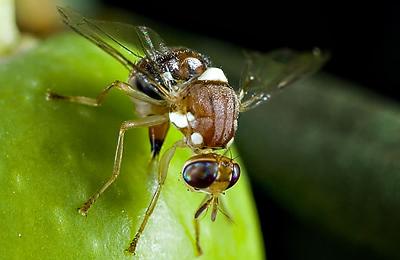
1. Know what OLFF damage looks like:

Here is a female olive fruit fly - note the spot on the end of her wings
Male (left) and female (right) olive fruit flies. Note the spot on the end of the wings, the white spot in the middle of the body, and the ovipositor on the female.
Photo courtesy of:http://www.iaea.org/newscenter/multimedia/photoessays/olivefly/

Here is an olive hanging on the branch with evident tunneling and an exit hole where the adult fly emerged.
Unripe olives with tunneling from the olive fruit fly larvae.
Here’s a new adult olive fruit fly leaving the olive.
Are these olives ripening or rotting? Rotting. Notice the small exit holes in the fruit where the adult fly emerged from the olive.
2. Understand the fly’s biological cycle:
The adult female is able to lay her eggs in the olive fruit once the olive has gone through pit hardening (late summer). So the crop is vulnerable in between pit hardening and harvest – this window is when it is most important to protect your fruit.
3. Understand The Population
Trap to understand your population levels. The yellow colored ball traps for OLFF are recommended, filled with a water and torula yeast mixture. By checking your traps regularly, you can determine if the OLFF pressure is high or low in any given season.
4. Orchard Hygiene
In the past we talked a lot about orchard hygiene being the key to keeping populations low, but now the OLFF is endemic and likely will find your orchard whether or not you have cleaned up last year’s fruit in your grove. There are so many untended olive trees in CA in shopping mall parking lots, in residential backyards, and along city streets that the OLFF has ample breeding material.
5. Know Your Area
Know that coastal orchards will face much higher pressure than inland orchards with hotter summer temperatures. The ideal temperature window for OLFF breeding is between 68°F and 86°F.
6. Work with the tools we have
For certified organic growers there are three primary tools:
Trapping – on a small scale trapping can help protect your fruit. On a larger scale, trapping is best used as an indicator of OLFF population density rather than population control.
Products that contain the active ingredient of Spinosad. For example, GF-120. These products can be used all year round to help reduce the adult fly population. Spray on the north side of the tree and into the canopy; the longer the product stays moist, the longer it will be attractive to the flies.
Kaolin Clay is a very effective deterrent to prevent female fruit flies from laying their eggs inside the olive fruit. This product must be sprayed as a full canopy spray (think of Christmas tree flocking) right at pit hardening. The advantage to this product is that it does not attempt to control the OLFF population, it just deters females from laying their eggs into the olives that are fully covered with the kaolin clay. Reapplication of the kaolin clay is sometimes necessary with rapid growth of the olives increasing in size (and therefore reducing the surface coverage of the kaolin clay) or because of rain (which can wash off the material). Use a spreader-sticker with the kaolin clay mixture to help with good coverage.
We wish you all a healthy, fruitful growing season and harvest!
Certified Organic
By CCOF
Sustainably Produced
At Our Ranch
Early Harvested
High Polyphenols
Award Winning
Extra Virgin Olive Oil
